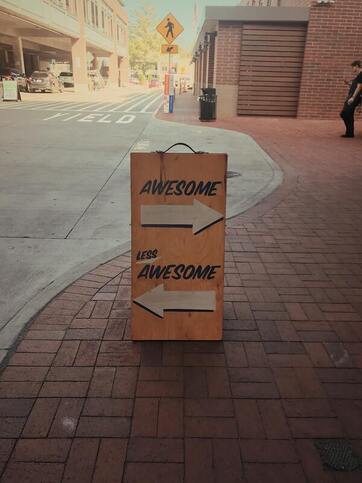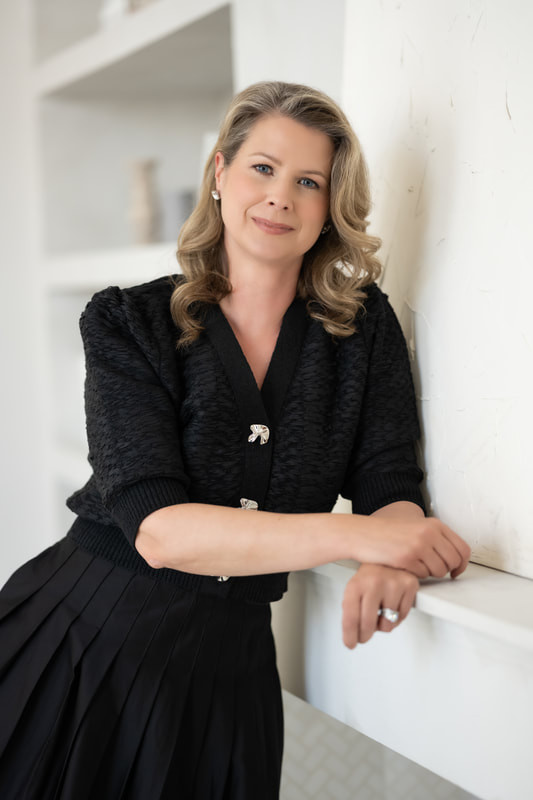|
Good leaders build you up, they don’t tear you down.
Lately, I’ve been talking a lot with others about what makes a great leader and it has reminded me of an experience I had as a first-year associate. At the end of the last day of a long trial, the senior partner turned to our trial team of five, and said, “Leave the boxes.” (This was when we brought physical copies of documents to court in dozens of bankers boxes.) “Erin will pack everything up and bring them back to the office.” This was puzzling. Every day prior, as was the norm at this firm, we had packed up as a team, all pitching in from law clerk to partner. When the articling student offered to stay and help me, the senior partner bluntly cut her off, “No. Erin will do this herself.” He then put on his coat and refused to make eye contact with me. The discussion was over. The others stood around awkwardly, not sure what to say or do, before finally putting their coats on too - end of trial drinks were waiting. As they were leaving, the junior partner looked at me and said: “You look like your dog just died.” I tried to laugh it off as my eyes filled with tears. Because that was exactly how I felt: crushed. And embarrassed. Humiliated. Ashamed. As I remained behind, alone, packing the boxes, trying to hold back tears, I knew I had obviously messed up and was being punished for it. This partner was putting me in my place. But…the kicker was… I didn’t know what I had done wrong! I worked hard, showed up early, did everything asked of me. I was perplexed. Did I miss a case in my research? Did I embarrass him in some way? I went over everything in my mind and when I came up with nothing, I felt even worse. I couldn’t figure it out. I was too stupid to even know what mistake I had made. The thing is, this could have been a good learning experience. The partner could have talked to me about how I messed up or provided guidance on how I could improve as a junior lawyer. I would have appreciated that, no matter how awkward the conversation might have been. Instead, this partner chose to teach me a lesson by making me feel small. I knew then that if I ever was fortunate enough to lead a team, I would not be like this partner. I would try to lift people up, not put them down. I would empower my team, not belittle them. I would give feedback to help them grow, not punish them for their mistakes. So, I guess this partner did teach me a very valuable lesson after all, although perhaps not the one he intended.
0 Comments
 Since the beginning of this blog in 2014, I’ve written at least one blog post per month. This has been a relatively easy goal to reach. Until now. This month I started several posts only to get stuck in my own writing process. Which made me realize that I actually have a writing process. It’s not one that I strategically developed; it’s more like a process I fall into time and time again without any conscious effort. But in the end, it seems to work for me. So, I ditched the last draft I was writing and decided to write about the seven stages I proceed through every single time I write something. Almost like the seven stages of grief, every time I draft a blog post, factum, statement of claim, affidavit, or article for a publication, I inevitably go through the following: Stage 1: “Woohoo! I’m excited! I love writing!” I’m always excited and filled with anticipation when I start with a blank page. I feel the creative juices bubbling beneath the surface ready to move my fingers on the keyboard. I’m excited about the prospect of creating something from nothing and the potential for greatness. I’m excited to craft a winning argument to help a client win their case. I’m excited to tell a story in an affidavit. I’m excited to share my thoughts in a blog post or article. This is one of my favourite stages in my writing process. Stage 2: “I’m the worst writer ever and my client’s case is crap (or the idea for this article is crap).” And…. from the soaring heights of excitement, I come crashing down into the depths of despair. This usually happens after I start writing for a bit and put some words on the page. I then realize that perhaps the client’s case is not as great as I initially thought. Or, what I thought was the legal issue I was researching perhaps isn’t the one I should be focusing on. Or, the article idea now seems boring. I can’t seem to get my ideas straight. The paragraphs don’t flow. There is no organization. What I’ve written is an incoherent mess (or at least I think it is). Stage 3: “I’m back on track. I totally know what I need to do now!” Once I get the initial mess out on to the page and stare at it long enough, I reach a point where I can see through the mess and clarity emerges. [Cue image of clouds dispersing and sun shining through – this is the “aha!” moment] The structure and ideas all make sense. At this point I can really start writing. I get into a groove and the words start flowing again. Stage 4: Dun Dun Dun! …..The Dreaded Spin Cycle This stage of my writing process always sneaks up on me. I think I will make it through without visiting this stage, but inevitably it arrives. It’s the stage where I am sucked in so deep into the writing, I feel like I have fallen down a rabbit hole. Sometimes at this stage a factum has ballooned to 100 pages, or the legal opinion has 20 different possible outcomes to questions that weren’t even asked. This is the stage where I keep reading and writing and writing and reading and reading and writing…but I don’t feel like I have made any progress. I just sit there spinning around and around and not going anywhere, like a hamster on her wheel. This is the time that I must WALK AWAY. I normally leave the work and start another assignment or work on my invoices or some other task I need to do. I try to stay away for a day but if that is not possible, at least a few hours. Stage 5: “Phew. I have something done. Maybe it’s not horrible after all. I can work with this.” When I come back from the time away, I am usually pleasantly surprised with what I have written. There is enough there for me to work with, and now it is time to do a “big picture” edit or to cut and slash (saving the stuff I cut, obviously, because I will likely change my mind and want it back again). This is where I mold what I have into the first real draft of the final product. Stage 6: “Sweet. I like this. This is not bad, not bad at all.” As I work with the written product, I start to like it more and more. I get excited again. It’s turning into something that makes sense, is clear, cohesive and concise. I get excited about editing it and revising it and making it better and better with each draft. Stage 7: “I’m finished! It’s good. I’ve served it (or given it to the client or posted it on my website). It’s out into the world. Such relief…… Maybe I will read it one more time. …..NO! How did I not see that TYPO?” This happens too many times for me. Despite reading it over many times, out loud, and backwards, there is always that one typo I never see until it’s gone and out into the world. Sigh. But also, at this stage I feel a deep sense of pride about what I have written and accomplished. And then I start on my next project….. What’s your writing process? Is it as crazy as mine?  I recently moved houses. (Yes, we are those “COVID made me move” people.) While I was packing up over a decade’s worth of ‘stuff’, I found a performance review from my third year of practice shoved in the bottom of an old banker’s box. Reading the comments made me think about how much I have grown as a lawyer, especially when it comes to receiving negative feedback. For some context, the following are direct quotes from reviews from the partners I worked with that year (edited for confidentiality) discussing my written advocacy skills: “Erin’s written work product was clear, direct, and concise.” “Very solid writing skills. Precise and clear.” “Erin has very strong drafting skills. Her writing is point first and persuasive.” “Erin consistently produces first rate written work product. It is clear, user friendly and responsive to the issues it is intended to address.” “I did not think Erin’s written work was at the expected level. I was disappointed with the draft facta (sic) in the ‘XYZ’ matter and they required substantial re-working.” I didn’t remember the first four reviews, but that final one has stuck with me for 12 years. Especially the word “disappointed”. As a recovering people pleaser, I hate disappointing anyone, especially someone who is relying on me to do a good job. I also remember my reaction when I first read that review. I remember avoiding the partner in the halls. I was angry. I was hurt. I thought it was unfair. I was in a bad mood. It didn’t matter that the rest of my review was glowing. That final comment was the only one that counted. It took me a long time to learn how to handle this type of feedback and criticism of my work. It took me even longer to realize that negative feedback can be a good thing. Over the years I have relied on a few tips that have helped me when receiving negative feedback. These tips work for lawyers of all ages and stages because as we progress in our career, partners may no longer be critiquing our work, but management, opposing counsel, judges, and our clients are: 1. Don’t rush to respond. Take a breather. Our first instinct will be to be defensive. I remember wanting to explain to the partner why his criticism was unwarranted, why I decided to draft the documents the way I did, why he was wrong. I felt the need to explain away the criticism. Folks, this is not helpful. It wasn’t until I was on the other end of providing feedback that I truly understood how unproductive this defensive behaviour can be. I remember one articling student. Whenever I politely provided feedback or suggestions on how to improve his work, he immediately pushed back with an excuse: “Well so-and-so does it this way” or “You should have told me you wanted it done this way” or “I’m only an articling student”. I was trying to mentor him and help him improve his legal practice, but he wanted none of it. He never listened to the specific feedback; instead, because he did not hear the glowing review he expected, he pushed back. Eventually I just stopped working with him. When a more senior lawyer, or a client, gives you negative feedback, fight the urge to speak. You will be defensive. We are only human. Take a breather. Maybe ask for time to respond if you need to. And listen. Truly listen to what they are saying. Try to understand the root of the criticism. Is it a fact (you missed a deadline)? Or an opinion (I don’t like how you wrote this)? If it’s a fact, immediately own up to the mistake or accept the criticism. If it is an opinion, see the next tip. 2. Ask questions to understand the feedback. If the feedback is not a fact, but an opinion, ask questions to understand. If we do not understand the negative feedback, we cannot act on it. What parts of the Statement of Claim need improvement? How could it be improved? What parts of the document did they like? etc. 3. Don’t avoid the person or hold a grudge: You are only hurting yourself. Yes, it is uncomfortable knowing that someone didn’t like your work. But if you avoid that partner or client, you are only hurting yourself. You will be missing out not only on opportunities to work with, and learn from, that person again, but you will also miss out on showing that you listened to their feedback and used it to improve. 4. Remember that not all criticism may be warranted. Sometimes the criticism is unwarranted. Consider where the criticism is coming from. Did your work product really fall below expected standards or does this partner always rewrite everyone’s work, no matter what? Does ego play a part? Or more importantly, is the criticism directed at you because of your gender, race or sexual orientation? This is why asking questions is so important. By digging into the criticism, it will be easier to see the intent behind it. 5. Understand the Positive Side to Receiving Negative Feedback Remember that proper feedback comes from an intent to help. That partner or client wants to let you know what went wrong so you won’t do it again. Often, we don’t see our own shortcomings. Be grateful that someone has taken the time to provide that feedback to you and that you now have an opportunity to be an even better lawyer than you already are. So, back to my negative review. Why did that partner write that comment? Maybe I wrote some crappy factums. Maybe I was working several long hours, for several days and I was too tired to produce stellar work. Maybe I forgot to use active voice. Maybe I missed some case law. Maybe the partner had a particular way he liked factums to be written and I failed to follow his preference. Or, maybe I just suck at writing. But I will never know. Instead of asking questions to understand the feedback better and to learn how to improve my legal writing, I ignored the partner. I missed an opportunity. Don’t be me.  I first came to the realization that I might have made a poor career choice during a casual chat with my colleagues at a social event. It was the usual Thursday night litigation drinks held in one of the boardrooms on the 43rd floor at my former firm. I do not recall what we were discussing, but at some point, I said, “I just really hate conflict”. Another associate turned to me with a quizzical look on his face, “You hate conflict? Aren’t you a litigator?” Light-bulb moment. It may sound obvious, but that was really the first time I put two and two together. I was able to recognize the source of the prickly-icky feeling that I had about being a litigator. I hated conflict but I was in a conflict-filled job. The thing was though, for the most part, I enjoyed being a litigator. There were so many aspects that I found exciting and invigorating. I loved trying to find the perfect case to support my client’s position. I loved analyzing the law and crafting a strong argument. I loved starting with a blank screen and finishing with a well-written and persuasive factum. I loved the feeling of making an amazing argument in court. All these things gave me little adrenaline highs (still do). But there were aspects of my job that kept me up at night. Contentious correspondence with opposing counsel caused me so much anxiety. The ‘gamespersonship’, the tactical maneuvering, the surprise strategic motion when I thought we were on track to settle, the “gotcha” new case handed over the morning of the court appearance…all made my heart pound. I could not breathe. Panic would set in. Every time I received a snarky email or even one that was just sternly worded, I would want to vomit. I would cry over opposing counsel being aggressive in settlement negotiations (after I left the room, thankfully) because the conflict it created made me so sad. I just wanted to scream: “Life’s too short! Let’s all get along. Let’s figure this out together. Why must we fight?!” My mentors and other lawyers told me I was “too sensitive”. I have been told this my whole life. I am so sick of hearing those words. My grade school teachers, professors, ex-boyfriends, friends, employers, partners at firms, opposing counsel: “You are too sensitive, Erin. Toughen up, grow a thick skin, and you will be fine”. For too long I was ashamed of my sensitivity and tried my best to hide my emotions. But that is so hard to do when you feel everything. When I walk into a room I just sense what others are feeling and absorb those feelings as my own. When you are in a high-conflict situation those feelings are intense. And I feel every single one of them. I know exactly where my dislike of conflict and my sensitivity comes from. I learned from an early age to walk on eggshells, to not rock the boat, to not cause any conflict that might set someone off. Figuring out a person’s mood, sensing if they were ready to blow, and keeping the peace, were all important if I did not want to get hurt, both physically and emotionally. Between my DNA and my childhood circumstances I am wired the way I am. When I told my mother that I was going to law school, she told me I was “too nice to be a lawyer”. At the time it annoyed me a little, but looking back now I realize she knew the true me. The real Erin was a highly sensitive person who might not fare well in the conflict filled world of litigation. Mothers know best. In my seventh year of practice, when I switched from corporate commercial litigation to estate litigation, things only got worse. I know, I know. Clearly there would be more conflict and emotions in estate litigation, but I am always one who is up for a challenge. I thought I could just put mind over matter and force myself to just “deal with it”. I thought I could beat my sensitivity. I lasted 7 months. The conflict and the anger and the sadness in estate litigation were too much. I absorbed them like a sponge and took those feelings home with me every night. My days were filled with brothers and sisters intensely hating each other; aggressive counsel (some bordering on sharp practice); angry correspondence; clients either crying on the phone to me or swearing at me. I felt like I had this constant orb of anxiety around my body 24/7. On my way to work I would hope to be hit by a car. Not injured badly, just enough that I would have to go to the hospital and not work for a few days. Things were not good. Eventually, I learned I was pregnant, and my obstetrician told me that the stress I was under was affecting my health. It was only then that I gave myself permission to admit defeat. I was never going to “toughen up”. I was never going to build that emotional protective shell around me. I was never going to grow that thick skin. And that was okay. I quit the next day. I have not been a “regular” litigator since. I started my own practice as a freelance lawyer. I support litigators behind the scenes doing all the work that I love to do, drafting pleadings and factums, conducting legal research, writing legal opinions, etc. I never have to deal with opposing counsel. I never have to deal with emotional and distraught clients. It is the perfect practice for me. But some days I feel like a quitter. I see lawyers my age winning prestigious litigation awards and on the cover of newspapers working on headline grabbing cases. I went to law school to take on these cases and to help people. I went to law school to be a real litigator and I am not. Should I have stuck it out? Could I have learned to deal with conflict? I know I was really good at my job. I know I am an excellent litigator. Should I have toughened up and become less sensitive? Is it possible to be a litigator who hates conflict? Is there a secret I never learned? I have no answers. I will just go on with my day being my sensitive self, feeling all the feels, and doing my best behind the scenes to resolve as much conflict in this world that I can.  It was a lovely surprise to learn last week that I was nominated for the Canadian Lawyer Magazine Top 25 Most Influential Lawyers 2020 award under the "Changemakers" category. Anyone and everyone can vote at this link HERE. You will also see some of the lawyers featured in past Women Leading in Law profiles nominated as well including Vivene Salmon, Kyla Lee , Meg Chinelo Egbunonu, Atrisha Lewis, and Charlene Theodore. Voting is open until JUNE 5th!  This blog post was not supposed to be about pandemics or self-isolation or quarantines or our uncertain times. I had prepared a draft post about freelance lawyering. But I cannot ignore how our lives have shifted. Every time my fingers touched the keyboard, I wanted to write about our new normal, and, in particular, a lesson I have learned. A lesson from a troll. Not an online troll that attacks people on social media, but an actual troll. Thanks to Disney+, our family was able to watch Frozen II at home earlier than anticipated. I won’t spoil the movie, but something happens, and everyone is scared, and not sure what to do. The Troll King (a.k.a. Grand Pabbie) has special powers and can normally “see” things. However, this time, he cannot see the future. This, of course, freaks people out, but the troll is calm and says: “When one can see no future…all one can do is the next right thing.” This has been my new mantra for the last week or so. Right now, I am sure many are feeling like me, unsure of what the future holds for us, our families, our businesses. As a self-employed freelance lawyer and owner of a small business, Flex Legal, I obviously need clients to give me work (in my case lawyers and law firm clients). If I don’t get work, I don’t get paid. I’ve already noticed a severe drop off in projects coming in to Flex Legal. I also know many people who have recently started their own law firms or sole practices. They may be regretting not having the steady paycheques or partnership draws right now. It is easy to panic and start imagining what the future will look like. If you are anything like me, you may be picturing the worst. But instead of dwelling on the future I cannot see, I’ve decided to listen to a cartoon troll and do “the next right thing”. What is the “next right thing” you can do? What is in your control right now? We can take this situation hour-by-hour or day-by-day and take small steps as we make our way to the future that we cannot see. Some of the small steps I have been taking: Set a schedule: This helps our family do the “next right” thing throughout the day. We know when we will wake-up, have lunch, go to bed etc., just like we did pre-pandemic. Take small steps to adjust to the new normal: I am fortunate as I do not have to adjust to working remotely. I’ve been working remotely for seven years now. However, not everyone is used to being away from their colleagues and friends. It can be isolating. Give yourself time to settle in and take small steps to find what works for you. What is the “next right thing” to make it better? Don’t like where you set up your home office? Try moving it to another room. Don’t like what you are wearing? Change into something more comfortable. Don’t like the schedule you set for yourself? Modify it. Listen to a Favourite Song: Music has helped me a lot. I grew up in a house that listened to country music (ugh) and the day I left home I swore I would abandon it for life (and did). It’s funny how I’ve been drawn back to listen to some of the songs of my childhood, and how they have been comforting. Make a playlist of your favourite comforting songs. Have a dance party in your kitchen. No one is watching! Take breaks: Your workday is not the same as it used to be. Yesterday I didn’t feel very productive but felt I needed to keep working as it wasn’t the “end of the day” yet. This was silly. So, the “next right thing” for me was to leave my desk and read a non-law book. I played on the computer with my daughter. I did a little laundry (full disclosure: I love doing laundry, so this was a fun break for me – yes, I am weird). Now today I feel much more productive. Take breaks from work, breaks from the kids, breaks from your spouse and do the “next right thing” for you. If you have kids, don’t be too hard on yourself or them: We can’t teach our kids full-time, work full-time, maintain our relationships with friends and family, and stay sane at the same time as being isolated in our homes. It’s impossible. Let them watch TV, let them be on the computer more. Find the “next right thing” that works for your kids (not the kids of the parents on Pinterest or Facebook or Twitter) to help them through this. Avoid too much social media and news: I check twice a day: once in the morning and once around dinnertime. It is easy to get sucked in. Don’t check your investments either (if you are fortunate enough to have some) and don’t dwell on the what-ifs. These small steps in monitoring what we are reading and watching can help keep us sane. Focus on the good, but don’t ignore the bad: We are all feeling some discomfort over this situation. The Harvard Business Review posted a great article explaining that this discomfort is really grief. Grief is a process. We cannot just ignore it and pretend everything is wonderful. But also, take some time to seek out some of the good. Look at all the amazing ways the courts have promptly modernized their processes over night. Look at all the helpers out there stepping in and stepping up for the vulnerable. If my paid work does dry up, I know I can tackle other things I have been putting off, articles I wanted to write, updating websites, my 2020 Business Plan, etc. These are all small steps I can focus on that will help me take this one day at a time. Like the Troll King, I have no idea what the future will hold. All I know is I can do “the next right thing”. What is the next right thing for you?  I was inspired to write this post by an article I recently read on how to exit an insulting job interview gracefully, called “Why Don’t More People Walk Out of Bad Job Interviews?” I started thinking, how can we avoid bad interviews in the first place? Interviews are a necessary part of finding and filling legal positions. What can we do as both interviewees and interviewers to improve the job finding process, especially in the current legal market? Interviewing for any job is very stressful, but particularly so for new law grads. Many have massive law school debt and the market is still pretty bleak. I meet with a lot of new unemployed lawyers or lawyers that are in-between jobs. Anecdotally, I've witnessed that the average time for a new lawyer to find a law job is between 6-12 months. That’s a long time. These lawyers feel like their lives are on hold. They also sometimes get excited about a job and after months of waiting and follow-up interviews find out the position went to someone else. They start the job-hunting process over again. With these added pressures lawyers are going into interviews already super stressed. And, being the interviewer can be equally stressful. Especially if this is the lawyer’s first time hiring an associate or law student. They will be spending a lot of time, energy, resources, and money on this individual, what if they choose the wrong candidate? Also, the associate or student will be working under the lawyer’s firm name and a brand the lawyer probably spent a long-time building. Can they trust the candidate to represent their firm? I half-jokingly tell people I have my own law practice because I’m just really bad at interviews. I’ve had a few good ones, but I have also had some that were extremely embarrassing. For example, in law school, during a full day of on-campus interviews I developed this nervous tick of licking my lips. Every. Few. Seconds. I. Would. Stop. To. Lick. My. Lips. No matter how hard I tried, I couldn’t stop! I probably looked like a lizard. Then, later in my career, I once ended an interview with: “Thank you for this, I love talking about myself!!” What?!? “I love talking about myself?” Where did that come from? Who says that? I was mortified. I’ve also had interviewers behave poorly. I was once interviewed by a panel of three people and the lead interviewer began by holding up the written component of the application, saying: “You do know that if you worked here I would have re-written this entire thing.” Another member of the panel would snort and roll her eyes every time I gave an answer. When they gave me a “situational” question involving a “big, burly client” I referred to the client with a male pronoun. The lead interviewer held up her hand and said: “I didn’t say the client was a HE, gender stereotype much?” The two women looked at each other, laughed, and started writing furiously in their notes. I was so confused by their behaviour. The third interviewer seemed just as puzzled and he kept giving me sympathetic looks. I knew I had absolutely no desire to work for these toxic people. I should have exited gracefully by thanking them for their time and telling them I didn’t think it was the right fit. Instead I sat there politely listening to their snorts and put-downs for a full hour trying to answer their questions to the best of my ability. I was holding back tears by the end. To this day I’m not sure if it was an interview technique to weed out people who couldn’t handle hostility or whether they genuinely thought I was completely useless. Besides abolishing interviews altogether (is that possible?) what can we do as both interviewees and interviewers to avoid negative interview experiences and improve the process of finding a job? Although I am not an expert (as evidenced above), for what it's worth, here are my thoughts: For interviewers:
For interviewees:
Do you have any tips for improving law job interviews?  Starting your own legal practice, or business, can be overwhelming and terrifying. Some lawyers who branch out on their own are able to bring clients (or a full practice) with them from an old firm. Most of us are not that lucky. I started my own freelance lawyer practice, Cowling Legal Freelance, in 2013 from scratch. Through this I have learned several important lessons about building a legal practice and business. One of those lessons: Always say “Yes”...... until it is time to say “No”. WHEN TO SAY YES Unless you are independently wealthy, starting a legal practice with little or no clients means you have to say “yes” to files that show up, even if they may not excite you. Often people refer to this as practicing “Door Law” – your practice consists of whatever comes in the door. If you have a mortgage to pay and mouths to feed, saying "yes" is necessary. Obviously, you should only take on files that you are competent to handle, but use this as an opportunity to try new things and expand your skills. This is actually an exciting time! You may take on a file in an area that you never thought you would be interested in and discover you love it. I learned lots by saying "yes" in the early years of my own practice. One firm asked if I would do a flat fee project. I had never done one before as a freelance lawyer, but I said "yes" anyway. I quickly learned that I had severely underestimated and undervalued my time - a mistake I never made again. But, I now know how to flat fee out projects better and have a new service to offer my clients. I never would have learned this if I said "no". In the beginning I also said "yes" to things that took me well outside of my comfort zone or were a lot of hard work for little or no monetary reward. But, those opportunities turned into more opportunities and helped build my practice. For example, I answered "yes" when asked to write articles for legal publications and lawyer associations. Even though they didn't pay, and it takes a lot of time and hard work to write an article, it was a great way to get my name out there without having to pay advertising fees (low on clients, means low on cash). It was the same with volunteering for legal organizations. Saying "yes" to help organize a CLE event (not easy work), led to me being asked (and saying "yes") to speaking at a different legal event. A few lawyers saw me speak and sent work my way. Meeting the Dean of the University of Ottawa Faculty of Law over Twitter (through tweeting some of those time-consuming articles I wrote) and saying "yes" to having coffee with him, eventually led to my part-time position as Regional Alumni Advisor. This are just some examples. It can be scary stepping into new situations and trying new things – but just saying "yes" can open up so many opportunities and, in turn, build your practice. Saying "yes" meant I was trying new things, meeting new people and going to new places. It was so much fun saying "yes"....until it was time to..... SAY NO What is the downside to learning to say "yes" to everything? You get good at it. You get into a habit of automatically saying "yes". You want to have a coffee to pick my brain and expect me to travel 40 minutes to you in the middle of the day? Volunteer hours of my time in an area of law I am not really interested in? Write an article for a publication that has readers who would never use my services? Decrease my billable rate and put up with your abusive emails because you promise me lots of work? ....ummm what?! It really sounds silly to say "yes" to these suggestions, but once you get used to saying "yes" to build your practice, it can be hard to shake the habit. It makes sense to say "yes" when you start out because you have more time (all you have is time, when you have no clients!) but that changes once your practice is up and running and time becomes a precious commodity. Sometimes, even though you now have a steady flow of work coming in the door, you have files that excite you, and you've built a solid brand, as a business owner you still can't help but worry that the files will stop coming. Or, the writing opportunities will dry up. Or, the speaking opportunities will disappear. So you keep saying "yes" to everything even though you should be saying "no" to some things. Last December I felt the beginning of burnout creeping into my life. I had the constant feeling like I was holding my breath all day, waking up panicking at 3 a.m. convinced I missed a deadline, stress-eating (chips for breakfast? Why not?), I was irritable, cranky, tired…I knew something had to change. I was doing too much. So I decided 2019 was "My Year of Saying No”. Not with the intention of saying “no” to everything, but just to be more strategic with my use of "yes". The response to "My Year of Saying No" has been great. Most people have understood and respected my decision. Often it's not a straight out no (although sometimes it is, especially with difficult clients), but more of a "not right now". I ask that they check in again next year or I make a note to follow up when it is a better time for me to consider the opportunity. It hasn't been easy, but life is much more manageable. For those of you who are like me, and find it hard to say "no", here are some things to consider: Is that client questioning your hourly rate at the beginning of the relationship? Is she not respecting your time and calling you 15 times a day before she has even signed your retainer? These are red flags of a difficult client. It is okay to say “no” to clients like this. If someone wants to have a coffee with you to "pick your brain", it's okay to ask them to come to you. It's okay to limit it to 15-30 minutes. It's okay to even say "Sorry, I am tied up for the next little while, can you check in with me in a month or two?" You've been asked to write an article. Is it for a publication that your clients or referral sources read? Is it on a topic that interests you? Or, will it be a pain to write? Will you have time to write it during your workday? Or, will you spend your family time or "me-time" writing it? It's okay to say "no" if the publication is not a good fit, or suggest another topic, or ask if it can be published in the next issue if the timing does not work. If you are asked to speak at a conference, is it paid? Who is the audience? Will it benefit your practice? Will they cover expenses (travel, etc.)? Do you have to write a lengthy paper? It can be flattering to be asked to speak, but if there are only a few "pros" and lots of "cons" it might just be a waste of your time and energy. Building your practice, or keeping your practice busy, is an on-going endeavour and it can never stop. So, it is good to keep taking on clients, keep writing, keep speaking, keep networking, etc. BUT once your practice grows and your time shrinks, you must be more selective in what you say "yes" to...Otherwise burnout may be around the corner.  I’ve made a mistake. A mistake that I know I should not make, I never intended to make, and I swore I would never make, but I did: the summer is over, and I didn’t take nearly enough time off. I know there are more serious mistakes for a lawyer to make (the Law Society isn’t knocking on my door, demanding the revocation of my licence to practice law), however, this seemingly small mistake is having repercussions – a rippling effect - on my job and life. How I Messed Up I had the best of intentions to unplug this summer. In the past, I would work extra long days on Monday to Thursday so I could take Fridays off in July and August and enjoy the warm weather. This year I found myself saying, “Sure I can schedule that call/meeting on Friday, no problem”. Or, thinking to myself, “I’ll just pop into the office Friday morning and take the afternoon off”, only to look up and see that it was 6pm. No worries, I thought, there’s plenty of summer left. In July we loaded our three kids into the car and drove to remote Maine for a relaxing seven-day long vacation (I know, I know, “relaxing vacation” and “three kids” don’t normally go together). On our arrival, I found it so peaceful…almost too peaceful. My phone was not making any noises. I wasn’t receiving any emails. I mean none. No OBA emails. No Law Society emails. No “Let me do an SEO audit on your website” emails. What was going on?! I looked at the service bars on my phone…. ack…. No cell phone reception! This might sound ideal to some, but as a sole practitioner and sole owner of a business (Flex Legal), and usually the first point of client contact, I started to panic. I quickly logged on to the WiFi at the rental home and sure enough - “ding, ding, ding” - the emails started rolling in. And, of course, something was up with one of our clients. There was a miscommunication between the lawyer client and a freelance lawyer. Both were looking to me to assist. By the time the issue was resolved it was three days into my vacation. On the seventh day I was finally starting to unwind, and . . . it was time to go home. But, no worries, there was still plenty of summer left, it was only August. On my return to the office I did not feel relaxed. I did not feel rejuvenated. I felt lethargic. I would go to the office with a long to-do list and I would barely get through a few items. Normally I am energised to get to the office in the morning, but 8 hours would go by and I wondered, what did I do all day? Anything? Instead of recognizing that I needed a break, I pushed through, I stayed at my computer all day, everyday. I didn’t get anything done, I told myself, how could I justify taking a day, or days off, now?! And then August was over.(*) We are now well into September (almost October!) which happens to be my busiest time of year. There is always an uptick in business for Flex in the fall and I teach at the University of Toronto. My calendar is full of conferences, networking events, volunteer meetings. My window of opportunity to take a proper break is closing. Take That Vacation, it will Make you a Better Lawyer! I’m not giving you any earth-shattering information. We all know that taking a real vacation makes us less stressed, more focused, and in return, better lawyers, better employees, and better bosses. Even though I love my job, I still need a break from it. I need to unplug and unwind. I need to think about something other than the law. When I do, I return to my practice with more energy and commitment. When I worked for someone else, I always took all my allotted vacation. I felt I was working hard and I rightly deserved the time off. Now that I have my own practice and business and can, in theory, take as much vacation time that I want, I take even less. I need to change that. So, here is what I have learned, and what may help to ensure that you and I take our important vacations:
p.s. VACATION ALERT: I will be out of the office starting on July 6, 2020 and will return to the office on July 27, 2020. I will not be checking email during that time 😊. (*) I did convince myself to sneak off to an afternoon ball game one day in August (photo below), which was quite lovely, but it was not an uninterrupted break. Next time I will leave my phone at home! Photo by chen zo on Unsplash “How Do You Do It?” and “How Do You Do it All?”: Dispelling Myths About My Life as a Lawpreneur5/27/2019  The two questions I am asked on a regular basis are: “How do you do it?” and “How do you do it all?” The first question is often from people who want advice from me on how to start their own “thing”, whether it’s their own law practice, freelance law practice, or side-hustle business. The second question, “How do you do it all?”, is often followed by “Three kids, running a business, lawyering, teaching, blogging, when you do find the time?” Both of these questions make me uncomfortable. The fact that people are asking me these questions makes me think I am projecting this fake Instagram image that I am succeeding at all of this and it is easy for me. So, this blog post is dedicated to these two questions and dispelling some common myths that I hear. HOW DO YOU DO IT? A little over a year after I started my solo freelance lawyer business, I was having coffee with an acquaintance and she said to me, “Your business is going so well. You are so lucky! It is not normally that way. What luck you have!” (For some context, this individual had started a few different businesses that never really got off the ground.) I didn’t know how to respond, so I sort of just stared at her and muttered a non-committal answer. But inside my head I was thinking, “Luck? Really was that all this was? Luck?” That night at 3 am, lying in bed wide awake (you know, when my brain decides it’s a good time to work through some problems), I thought about her comment and why it annoyed me. Sure, okay, I concluded, there was some luck involved. I cannot deny that I certainly have the inherent advantages associated with being born into the life of an able-bodied white woman (more context, my coffee companion was also an able-bodied white woman). But I also knew that it most certainly wasn’t all luck. I worked really hard to get my business to where it was. The comment annoyed me as it diminished my efforts and placed my success out of my control. It was something that just happened to me and not something I made happen. And this is myth number one that I want to dispel: Successful businesses or law firms don’t “just happen”. You cannot hang up a shingle and “Voila!” you have a successful law practice. I meet with lawyers all the time who want advice on how to start a freelance or solo practice. When I follow up a few months or a year later to see how things are going, some are disappointed that their practice is not as successful as they thought it would be. I ask them what they have done to grow their business. Often, they tell me they put up a website, printed business cards, and had a few coffees. That’s it!?! You need to hustle! I went to two or three networking events a week (still do). I emailed everyone I knew. I set up as many coffees and lunches as I could. I spent hours writing and re-writing blog posts and articles for legal publications. I built my social media presence. I volunteered hours of my time with different organizations to build my profile. This was not luck. This was hard work. A website and some business cards may be “hard work” to some. Not to me. I’ve been financially independent since I turned 18. I paid for undergrad and law school by working several different summer and part time jobs. I know what it is like to have to work hard or not reach my goals. I guess my point is, you can have great ideas and a great passion for a new business or law practice but if you don’t put in the hours of work it will likely go nowhere. You may love the idea of freelancing or being your own boss (and it is pretty awesome!) but it is not all rainbows and sunshine. I fully agree with the saying that successful businesses are 1% idea and 99% execution. And sometimes even with all of that hard work a business will still fail. But with just an idea and no execution it will fail every time. Remember this when you see those “overnight success” companies or law firms. Likely “overnight” involved years of frustration, no money, hard work, and even failure. So how do you do it? Yes, you need a little luck, but you also need a lot of hard work. HOW DO YOU DO IT ALL? “Three kids? Wow, how do you do it all?” My response: “The same way my husband does it.” But no one ever asks my husband (who runs his own firm, sits on a board, coaches baseball, etc.) “Wow, three kids, how do you do it all?” I have this funny belief that both parents should parent their children. I don’t believe that children “need” their mothers more than their fathers or that somehow, just because our bodies birthed these kids that we are somehow better at parenting than men. So, to dispel myth number two – I am not doing it all because I don’t believe I should be doing it all. I have a perfectly capable partner, we have neighbours, we have grandparents, we have paid help, we have friends. I am fortunate and privileged to have a “village” and I take advantage of that. People always assume I started my own business so I can stay home with my kids and not because I might have had a great business idea and some entrepreneurial drive. How many people think this of men who start their own businesses? Do they automatically assume men become entrepreneurs so they can care for their kids? I understand the nature of my practice (freelance lawyering) and my business (a freelance lawyer company, Flex Legal) might suggest to some that I only work part time in my pajamas from home, but I work full time or more and have had an office since my first year in business. Some weeks I work more hours than I did when I was on Bay Street. However, as an entrepreneur, I can choose when I work those full time hours and I purposefully chose an office close to my house so I can see my kids who come home from school for lunch several days a week. But I am not the one who walks the kids to school every morning (that’s my husband) and we have a caregiver who picks them up everyday. So, I want to dispel the myth that I am parenting my kids full time and running a business full time and doing everything else full time. I am not. I don’t know how anyone could. I have time to do everything I am doing because I have a lot of help (and coffee, lots of coffee 😉). And even with all of this help, I still screw up sometimes. Bottom line: It is not easy. I am not doing it all . . . . I am just doing my best. |
Erin C. Cowling is a former freelance lawyer, entrepreneur, business and career consultant, speaker, writer and CEO and Founder of Flex Legal Network Inc., a network of freelance lawyers.
Categories
All
Archives
December 2022
|
|
(C) 2014-2024 Cowling Legal. All rights reserved.
|
Please note I am not currently practicing law.
Information on this website does not constitute legal advice and is for informational purposes only. Accessing or using this website does not create a solicitor-client relationship. See website Terms of Use/Privacy Policy. info@cowlinglegal.com
3080 Yonge Street, Suite 6060 Toronto,ON M4N 3N1 (appointment only) |







 RSS Feed
RSS Feed
